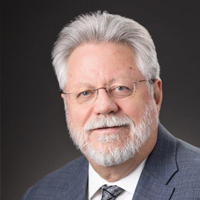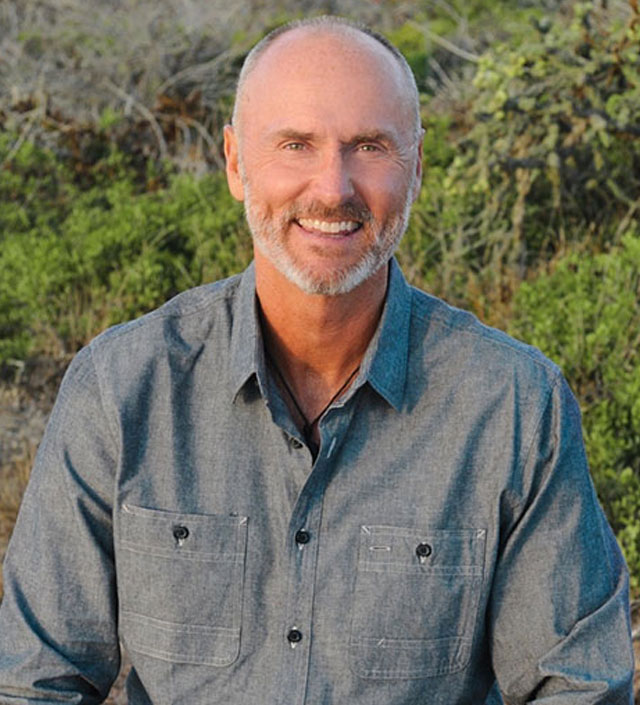Editor’s note: This article is second in a series of columns by financial advisor Bradley Jenson on “Thought Leaders in Longevity.” See his piece on Jonathan Ainsley.

Chip Conley, former head of Global Hospitality and Strategy at Airbnb (where he mentored co-founder and CEO Brian Chesky and the Airbnb leadership team) is an entrepreneur, disruptive business rebel, social change agent, and an intensely curious and wise “modern elder.”
“Chip is a force of nature,” says Dr. Paul Irving, founder of the Milken Institute for the Future of Aging.
Born in 1960, Conley graduated with an MBA from Stanford University. In 1987, he founded Joie de Vivre Hospitality where he served as CEO for almost 24 years. Conley co-founded the Modern Elder Academy in 2018 while still serving in his leadership role at Airbnb.
He’s also authored three books: “Peak: How Great Companies Get Their Mojo from Maslow,” “Emotional Equations: Simple Steps for Creating Happiness + Success in Business + Life,” and “Wisdom @ Work: The Making of a Modern Elder.”
Here is my recent interview with Conley.
Bradley Jenson: Chip, you refer to the Modern Elder Academy (MEA) as the world’s first “mid-life wisdom school.” What can financial advisors expect to learn at a mid-life wisdom school that might help them in their business development?
Conley: What’s been fascinating, Brad, is that we’ve had maybe three dozen financial advisors or retirement coaches come to us at Modern Elder Academy, for their own personal development but also in order to serve their clients better. Culturally speaking, the Western World does a poor job helping people understand that the second half of life doesn’t have to be like the first half. The first half of life has to do with “making it in the world,” in regard to achievement and the accumulation of things. But what often gets lost in the second half of life is discovering one’s meaning and purpose.
At the Modern Elder Academy, financial advisors can explore the deeper questions of meaning and purpose in life and how to translate that into their business practices and into their conversations with their clients. From a wider perspective, our MEA wisdom school can help financial advisors (1) Re-frame aging for thriving later in life, (2) Embrace a “growth mindset” for their own lives as well as for their businesses, (3) Navigate transitions in their lives and businesses, and (4) Invest in regeneration in all its forms, including the regeneration of “soul and purpose.”
MEA currently has over 2,500 alumni from 40 countries and we happily welcome more financial advisors to participate, either online or in person in Baja.
Jenson: Cognitive scientists now talk about a Curiosity Quotient (CQ) that predicts success as well as or better than IQ or EQ (Emotional Intelligence Quotient). How can financial advisors advance their own CQ for the benefit of their clients?
Conley: I love this, Brad. Tom Friedman of the New York Times has written about the Curiosity Quotient as well. Here is what is interesting to me about the Curiosity Quotient. When I joined Airbnb — and Airbnb is part of the reason that the “modern elder” term even exists—I was 52. I spent seven and a half years there, mentoring its three founders, and I thought my role as the older person in a company full of millennials was to be the wise soul for these young people.
What I came to realize pretty quickly — and I was emphatically reminded about it by the founders of Airbnb — was that the “Modern Elder” (as I was called) is someone who is as curious as they are wise. So, curiosity is not a quality just for 4-year-olds or for teenagers. Curiosity is a quality that becomes the “elixir of life.”
Famed management consultant Peter Drucker believed that curiosity was the special ingredient for creativity and animation. So when we actually invest in our curiosity, we are opening ourselves to more possibilities. Of course, we have to show a level of humility by being curious; it’s opposite of being a “know-it-all.” And curiosity is the key quality for people in mid-life because it is precisely the “CQ” that allows people to plumb the depths of their meaning and purpose in life.
Financial advisors who use CQ to best help their clients envision and prepare for their futures are likely among the best financial advisors on the planet.
Jenson: The linear three-phase life of learn, earn, and adjourn (from work to full retirement) is fading away in the wake of the Longevity Revolution. It is a major cultural transition that most people will be grappling with in the future. It is just one of many transitions that are coming down the pike in the Longevity Revolution. At the Modern Elder Academy, in addition to CQ, you speak about “TQ,” the Transition Quotient. Give us more perspective on life transitions.
Conley: There are a couple of thoughts here. First of all, Bruce Feiler wrote a book titled “Life is in the Transitions.” It is a New York Times best-selling book and Bruce is on our MEA online faculty. Based on the research he did, he was able to show that people are transitioning much more now than they did in the past. Now, why is that? Well, sure, if you had basically the “tyranny” of the three-stage life where you learn, you earn, you adjourn, or you retire, and you stayed in a job 10, 15 or 25 years, you didn’t transition all that much.
But now, we live in an era that is full of change. The length of tenure in our jobs is shorter. Unfortunately, the length of marriages is shorter than it was fifty years ago. Generally speaking, people have become more mobile, so they live in different places more often than, say, fifty years ago. So, all of this leads to the fact that there are more transitions happening.
And when you are actually in between two stages in your life, it means that you are in a liminal state, like a caterpillar transitioning into a butterfly (which Conley describes in this Ted Talk). In this liminal state, you have to become a beginner again, whether it means beginning a new job or a new marriage or in a new place that you are living. If these transitions are going to go well, it requires savviness about how you address such mid-life transitions.
Jenson: Speaking about transitions, how can you envision financial advisors helping clients with what you describe as their “mid-life edit”?
Conley: A fundamental question that a financial advisor could ask is, “What would you feel okay about having less of in your life?” That doesn’t just have to mean just downsizing on your home. The question is bigger than that. For example, it could mean that you want to spend less time being extroverted and have more time for healthy aloneness, as an introvert might.
By “editing out” less rewarding social busyness in your life, you could “edit in” more rewarding activities that are more in alignment with you and the renewed sense of meaning and purpose emerging for you in mid-life. With less social busyness, you might take a writing workshop once a year for a week, take painting classes, or do something else.
A great financial advisor can help people move in these directions through mid-life editing. How so? Because a great financial advisor is a life coach, if they are doing their job in a way that is transformative for their clients.
Jenson: You coauthored an interesting white paper titled “The Emergence of Long Life Learning.” Most people have heard about lifelong learning. What is “long-life” learning?
Conley: Long-life learning is a turn of phrase that I love. Jeff Hamaoui, another cofounder of MEA, came up with this phrase and the premise is this: How you learn and what you want to learn at 60 may be quite different than at 30.
According to research done by Yale’s Becca Levy — whom some of MEA’s curriculum is based upon — a positive view on aging can add up to more than seven years to one’s life! In our point of view, long-life learning is about how to live a life that is as deep and meaningful as it is long. It is less about just accumulating knowledge. It is less about skill-building for the sake of your career. It is more about curiosity, about how some things might be more interesting to you, now, in mid-life than they once were.
It might relate to spirituality or religion or having a sense of legacy in your life. It might be cultural curiosity. It might be learning how to become wise. At MEA, we help people mine their wisdom. So, one of the things we love to do is help people reconsider the narrative of their life. We help people make sense of their lives in ways that are much more deeply meaningful than if they had tried to make sense of their lives at age 30. And we do it together, in community.
Jenson: Many financial advisors work on intergenerational teams. What wisdom can you share to enhance teamwork?
Conley: At Airbnb, there were four generations in the workplace; at many other companies, there are five generations. I deeply believe that the future of effective and successful business organizations is looking at how we leverage this “intergenerational potluck” we have.
Over 40% of Americans have a boss younger than them and by 2025 the Department of Labor has said that over 50% of Americans will have a younger boss. So, we live in an era where everything is getting a little mixed up. In the past, the power rested with older people. But I think that there is a lot of opportunity for wisdom to move in both directions from old to young and vice versa.
When I was with Brian Chesky, I gained wisdom from him even though I was his mentor. I shared wisdom with him about EQ (emotional intelligence) and he shared wisdom with me about DQ (digital intelligence). For example, I learned about how to design and operate a website that has a better user experience; I came to understand millennial travel habits better; and I came to understand how venture capitalists in Silicon Valley work. I learned all of that from Brian. And Brian is 21 years younger than me.
From my experience, I know that people of different generations have wisdom to share with each other rather than wisdom going one way from older to younger. So, for older financial advisors who hire people from a younger generation, I encourage the older advisors to mine the wisdom of their younger workers, not only for the sake of a better client experience, but also so that the older advisor can grow younger in spirit as well as wiser through receiving youthful wisdom.
Jenson: What is an interesting question you are asking yourself that might be fun to share with the readers at Rethinking65, even if you don’t have the answer to it yet?
Conley: One of my favorite questions and one that we ask often at MEA is “What is it you know or have done now that you wished you’d known or done ten years ago?” So, think about that. Once you’ve got that lodged in your mind, then ask yourself, “What will I regret ten years from now if I don’t do it or learn it now?”
This very question prompted me four years ago — I’m 61 — to learn how to surf, which would have been harder to learn ten years from that time, at 67. It also led me to learn Spanish. Our MEA campus is based on a Mexican beachfront in southern Baja and I live here and have a home here. I was planning on living in Mexico a long time and if I didn’t learn Spanish at 57, it would be harder to learn it at 67. So, ask yourself, “What will I regret ten years from now if I don’t do it or learn it now?” You may find that this question transforms you in positive ways, as it has done for me. The question has helped me motivate myself to learn and do new things. This “wisdom of anticipated regret” can prevent real regret a decade from now.
Jenson: Chip, thank you for your time today. I wish you and the global community of the Modern Elder Academy all the best!
Conley: Thank you, Brad.
Here are the offerings at the Modern Elder Academy.
Bradley Jenson, CFP, CIMA, AIF, is a financial advisor with Duluth, Minn.–based Lake Superior Financial Services, Inc., which offers investment advisory services through Raymond James Financial Services Advisors, Inc. He is a coauthor of a forthcoming book “Join the Longevity Revolution: A Guide for Financial Advisors and Their Clients” which is expected to be in print in 2022. Brad is also an ordained minister. He can be reached at 218-625-2430. Any opinions are those of Brad and not necessarily those of Raymond James.







